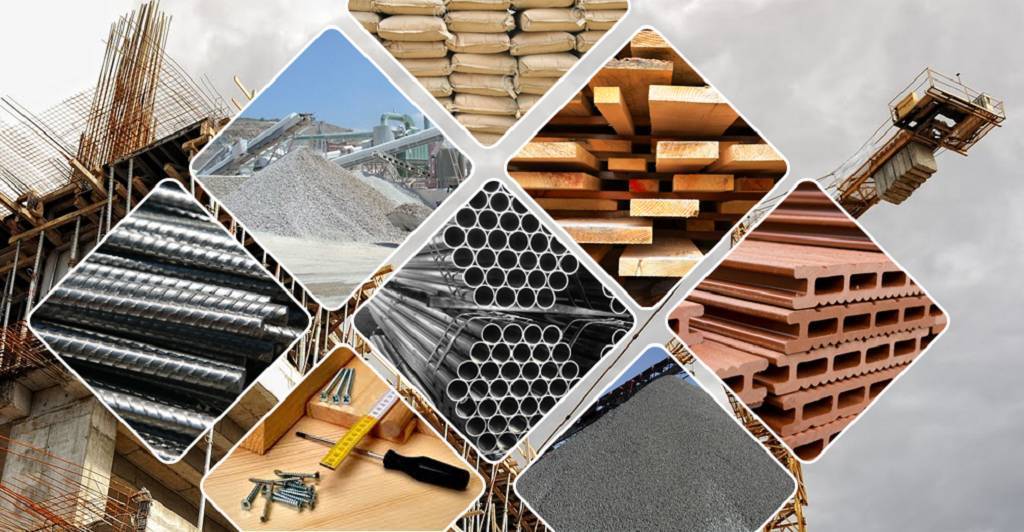When you think of construction, what comes to mind? Majestic skyscrapers? Cozy suburban homes? Innovative bridges? While architects and builders often get the spotlight, there’s an entire ecosystem working behind the scenes to make these structures possible. At the heart of this ecosystem are construction materials supplier. These unsung heroes provide the essential components that transform blueprints into tangible reality. Let’s dive into their world and understand their crucial role in the construction industry.
What Exactly Does a Construction Materials Supplier Do?
Construction materials suppliers are the backbone of any building project. They source, store, and distribute the materials necessary for construction. These materials can range from fundamental elements like cement, steel, and wood to specialized products like eco-friendly insulation or high-tech concrete mixtures. Their job isn’t just about delivering materials; it’s about ensuring these materials meet the required quality standards, are available in the right quantities, and arrive on time.
The Supply Chain: From Manufacturer to Job Site
The journey of a construction material begins at the manufacturer. Construction materials suppliers build relationships with these manufacturers to secure a steady flow of products. They often work directly with manufacturers to understand new innovations and trends in materials. This relationship is crucial, as it allows suppliers to offer the latest products and technologies to their clients.
Once materials are sourced, suppliers manage an intricate logistics network to get these products from the factory floor to the job site. This involves warehousing, inventory management, and distribution. Suppliers must navigate challenges like transportation delays, fluctuating prices, and supply shortages, ensuring that their clients receive what they need when they need it.
Quality Assurance: A Non-Negotiable Standard
In construction, quality is paramount. Materials must meet stringent standards to ensure the safety and durability of the finished structure. Construction materials suppliers play a critical role in maintaining these standards. They often conduct rigorous testing on materials to ensure they adhere to local and international regulations. This might involve checking the strength of concrete, the durability of steel, or the insulation properties of various materials.
Suppliers also stay updated with industry standards and certifications, ensuring that their products are compliant with building codes and regulations. By doing so, they help prevent costly and dangerous failures that could arise from subpar materials.
Innovations and Sustainability: The Future of Construction Materials
The construction industry is evolving rapidly, with a growing focus on sustainability and innovation. Construction materials suppliers are at the forefront of this transformation. They are increasingly offering eco-friendly materials like recycled steel, low-VOC paints, and sustainable wood products. These materials help reduce the environmental impact of construction projects and contribute to the industry’s push towards greener practices.
Furthermore, suppliers are embracing technological advancements. Smart materials, which can change properties in response to environmental conditions, are becoming more common. Suppliers who stay ahead of these trends provide their clients with cutting-edge solutions that improve the performance and efficiency of their buildings.
Building Relationships: The Human Element
While technology and logistics are crucial, the human element cannot be overlooked. Successful construction materials suppliers build strong relationships with their clients. They offer expertise, advice, and personalized service that go beyond mere transactions. Suppliers often become trusted partners, helping clients navigate complex projects and providing solutions to unexpected challenges.
This relationship extends to collaboration with builders, architects, and engineers. By understanding the specific needs of each project and offering tailored solutions, suppliers contribute to the overall success of the construction endeavor.
Conclusion: The Backbone of Construction
In the grand scheme of construction, materials suppliers might not always be in the limelight, but their role is undeniably critical. They ensure that the materials needed to bring architectural visions to life are available, reliable, and of the highest quality. From managing complex supply chains to embracing innovations and fostering strong client relationships, construction materials suppliers are integral to the success of any building project.
So, next time you see a new structure rising in your community, take a moment to appreciate the silent yet vital contribution of the construction materials suppliers who helped make it all possible. Their work might not always be visible, but it forms the very foundation of our built environment.





